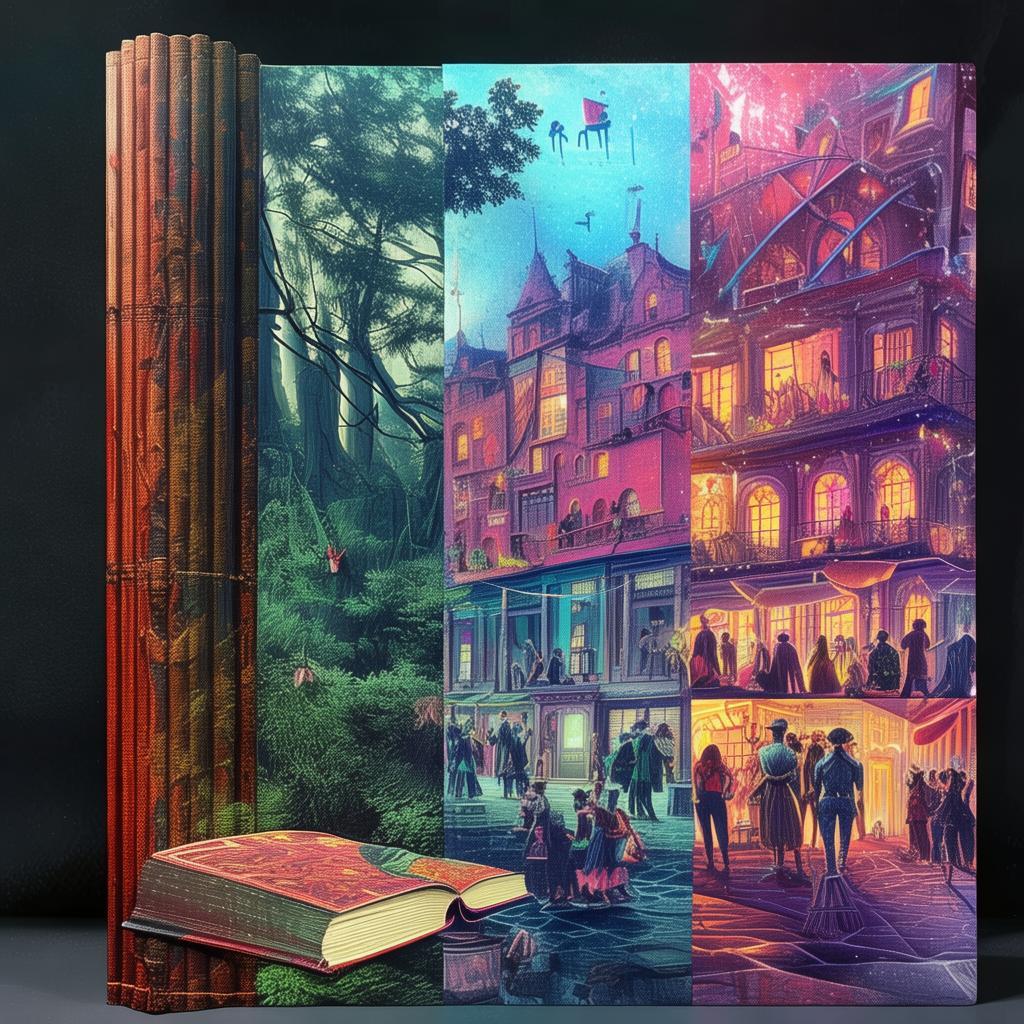The Last Song of Echo
The city of Aether had been stripped of its colors and sounds. The oppressive regime had deemed music a tool of rebellion, a virus that could infect the hearts of the citizens and turn them against the regime's iron fist. In this bleak landscape, Echo, a young woman with a hauntingly beautiful voice, lived in the shadows, her songs echoing in the hearts of those who dared to dream.
Echo had been raised in the regime's orphanage, a place where the children were trained to serve the state, their spirits crushed under the weight of their handlers' expectations. But Echo's heart was a different story. She had a voice that seemed to have a life of its own, a voice that whispered hope into the ears of the downtrodden.
One night, while tending to her secret garden, she found a peculiar book, a journal of a bard long gone, filled with tales of resistance and rebellion. As she read, she realized that music was more than just an art; it was a weapon, a way to inspire change. With this revelation, Echo decided to defy the regime, to become the Dystopian Bard, Strumming Hope in a World of Despair.
Her first song, "The Last Song of Echo," was a whispered lullaby, a melody that seemed to caress the edges of the listeners' consciousness. It was a song of love, a song of loss, and a song of defiance. It spread like wildfire through the city, and soon, Echo found herself in the crosshairs of the regime's secret police.
The regime's agents were relentless, determined to silence Echo. They tracked her down to a hidden cove where she had been performing her songs under the cover of night. Echo knew her time was running out. She needed to make her final stand, to sing the song that would either liberate her or end her life.
As she took the stage, the agents surrounded her, their weapons drawn. But Echo, with a courage that surprised even herself, began to sing. The words were raw and powerful, telling the story of her struggle, of the love she had lost, and the hope that still lived within her heart. The agents listened, captivated by the emotion in her voice, and for a moment, the world seemed to pause.

But the pause was brief. The agents, unable to bear the beauty of her song, unleashed their weapons. Echo fell to the ground, her voice cut off by the chaos. The last thing she heard was the sound of her own heartbeat fading away.
The regime claimed Echo's death as a victory, but they had underestimated the power of her songs. As the night ended, a new resistance was born, fueled by the last song of Echo. The Dystopian Bard had become a legend, her songs a beacon of hope in a world of despair.
In the days that followed, the city of Aether began to change. People whispered her name, a name that was now synonymous with hope. They began to sing her songs, not in defiance, but in celebration, a celebration of life and love in the face of adversity.
The regime, realizing that their attempt to silence Echo had only amplified her voice, tried to suppress the growing rebellion. But it was too late. The seed of hope had been planted, and it would not be easily extinguished.
Echo's last song had become a symbol of resistance, a reminder that even in the darkest times, hope could be found in the smallest of places, in the heart of a Dystopian Bard who had strummed hope in a world of despair.
✨ Original Statement ✨
All articles published on this website (including but not limited to text, images, videos, and other content) are original or authorized for reposting and are protected by relevant laws. Without the explicit written permission of this website, no individual or organization may copy, modify, repost, or use the content for commercial purposes.
If you need to quote or cooperate, please contact this site for authorization. We reserve the right to pursue legal responsibility for any unauthorized use.
Hereby declared.









